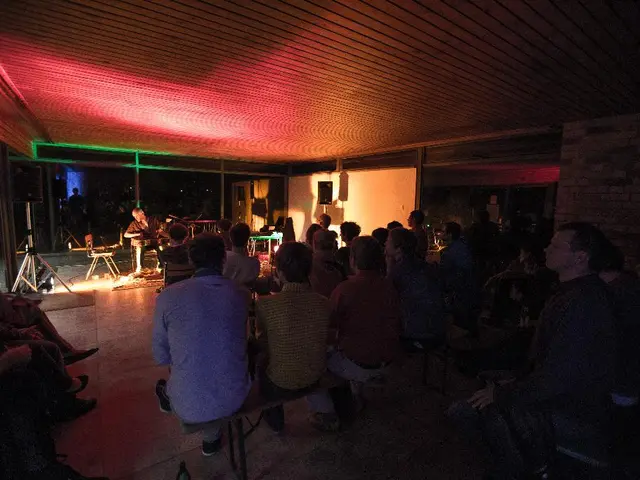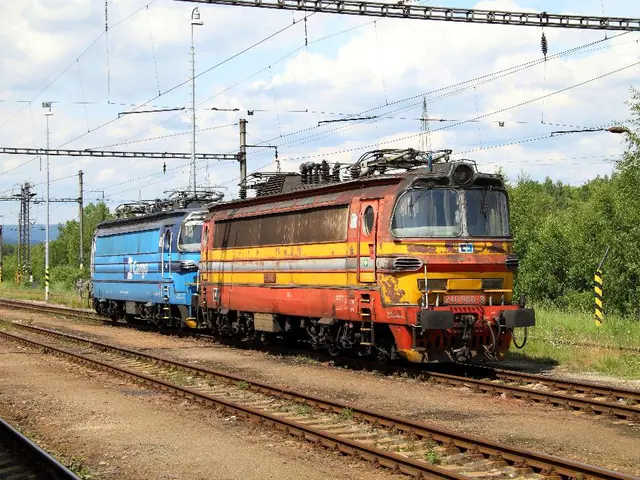Major tourism events are instigating a surge in tourism expansion across the Middle East
In recent years, consumer demand for in-person and cultural experiences has surged, leading to a significant increase in the popularity of big-ticket events. These events, which encompass exhibitions, conferences, and cultural performances, are transforming the tourism landscape in the Gulf Cooperation Council (GCC) region, particularly in the United Arab Emirates (UAE).
Noor Ahmad Hamid, CEO of the Pacific Asia Travel Association (Pata), has suggested expanding the definition of big-ticket events to include these types of experiences. His proposal comes as these events have proven to be powerful catalysts for attracting international tourists, generating substantial economic returns, and repositioning destinations on the global stage.
Sebastien Doussin, Senior Vice President of Global Travel Services & Destination Management at dnata, highlights the impact of technology on big-ticket events. He emphasizes the role of technology in distribution and customer experience, particularly in the digital ticketing process, as demonstrated by the FIFA World Cup in Qatar, which used a completely digital event app.
The economic impact of big-ticket events is significant. Global business travel reached a record $1.4 trillion in 2024 and is projected to rise to $2 trillion by 2030. In the GCC, the event and exhibition market is expected to reach US$827 million by 2029, growing at a CAGR of 3.94%.
Events also attract affluent tourists who spend $2,000–$3,500 per trip, amplifying economic impact through luxury, retail, and hospitality sectors. For instance, Dubai welcomed nearly 9.88 million overnight visitors in the first half of 2025, a testament to the success of strategic investments and tourism promotion campaigns that leverage large-scale events.
In terms of destination positioning, hosting big-ticket events elevates regional cities to globally recognized tourist and business hubs, strengthening their competitive stance internationally. The upcoming 2034 World Cup in Saudi Arabia exemplifies this strategic approach to leveraging big-ticket events for long-term tourism growth and economic diversification.
The trend of 'bleisure' (combining traditional leisure and business travel) has accelerated due to increased remote working and flexible working visas. This trend, coupled with the extended stays of business travellers, presents a new opportunity in the rapidly expanding sector.
The Middle East's strategic location, world-class infrastructure, and expanding schedule of high-profile events contribute to its position to capture a growing share of the global business travel market. In fact, the Middle East is projected to increase its share of the lucrative global business travel market from approximately 2.5% in 2024 to over 3% by the end of the decade.
Business events (MICE) are emerging as a significant driver of tourism growth across the Middle East, complementing the region's thriving leisure sector. Khalid Jassim Al Midfa, Chairman of the Sharjah Commerce and Tourism Development Authority, emphasizes the importance of investing in the right product for a destination in big-ticket events.
Examples of successful big-ticket events in the region include the FIFA World Cup Qatar 2022 and Expo 2020 Dubai, which attracted millions of international visitors, increased hotel occupancy, spurred infrastructure development, and enhanced the global brand image of host cities. Even smaller events, such as Bangkok's weekly K-pop concerts, are given as examples of how live entertainment can extend tourist stays.
In summary, big-ticket events in the GCC and UAE serve as powerful catalysts for attracting international tourists, generating substantial economic returns, and repositioning these destinations on the global stage through enhanced visibility, infrastructure, and strategic branding.
Read also:
- Flu Vaccination Timing and Symptoms to Watch Out For
- Executives at Lipton Teas Recognized as Trailblazers in the Consumer Packaged Goods (CPG) sector by Top Women in Grocery
- Challenges in Advancing Cell and Gene Therapy: Balancing Innovation, Legislation, and Production hurdles
- Explosive Growth Forecasted for the Asphalt Shingles Market, Reaching a Whopping USD 11.2 Billion by 2034








